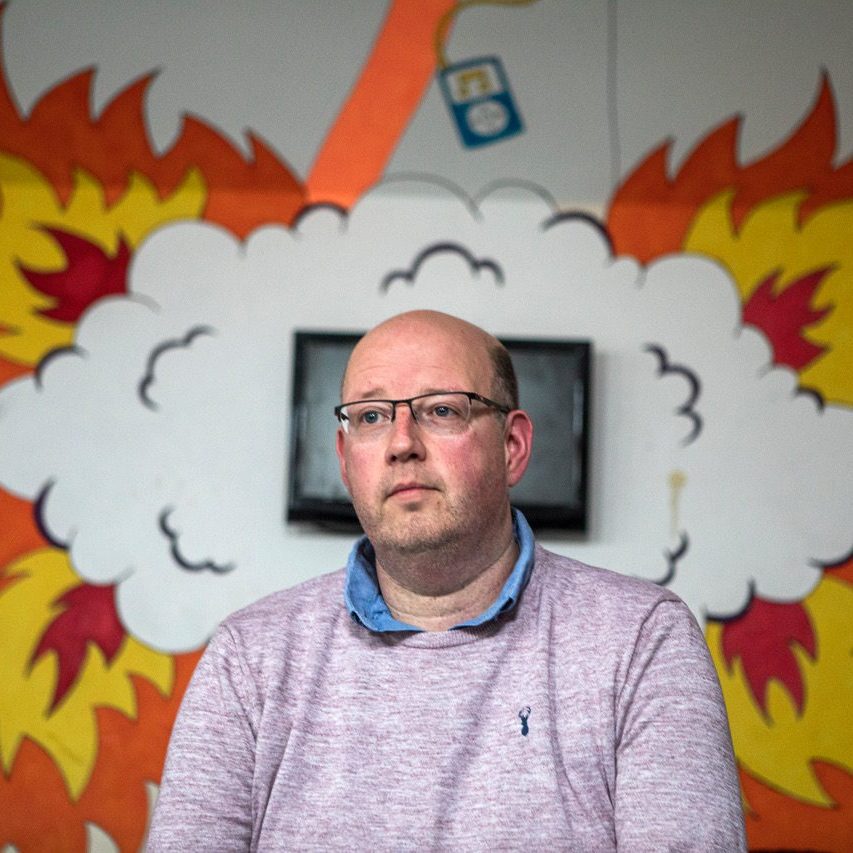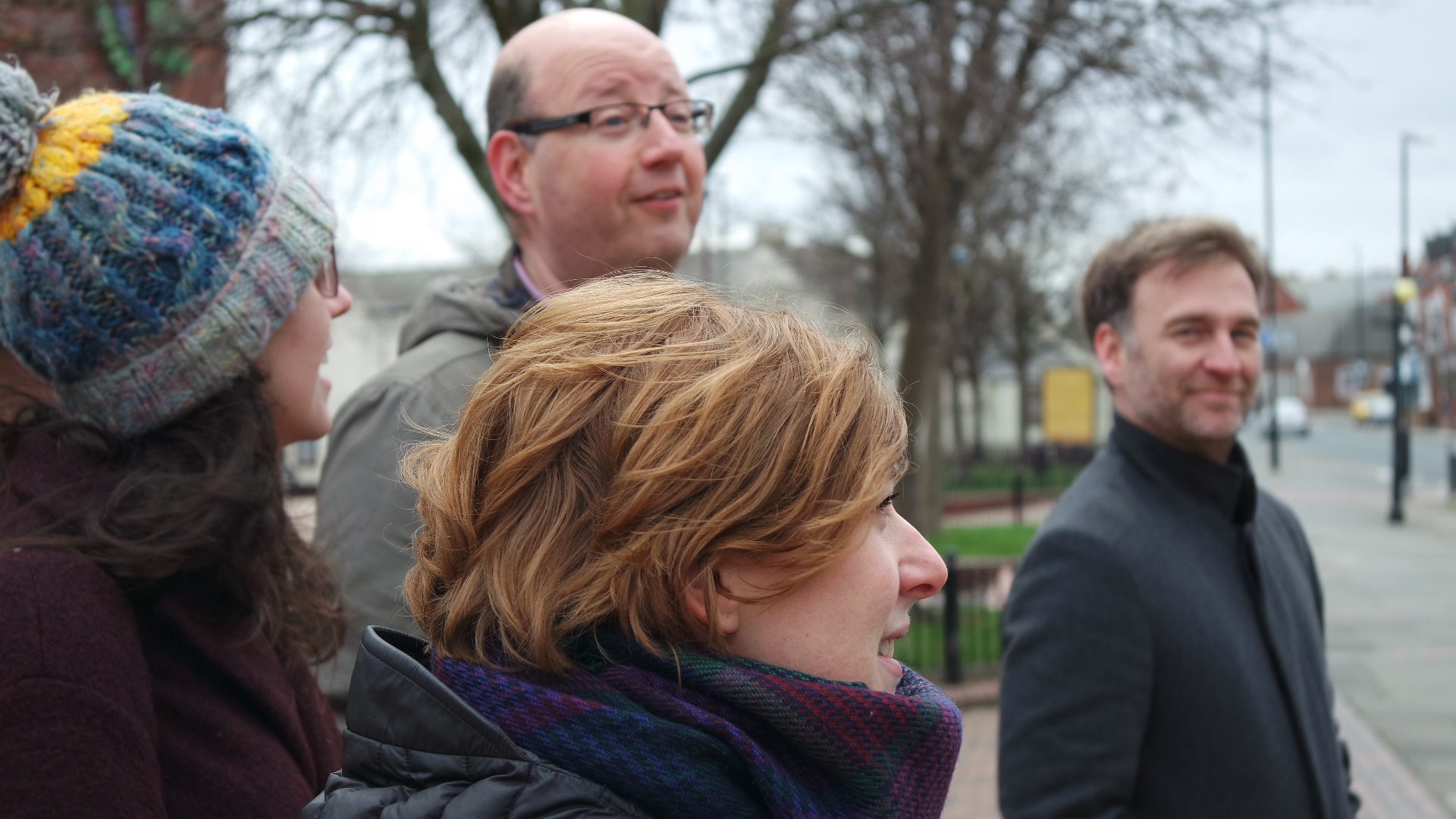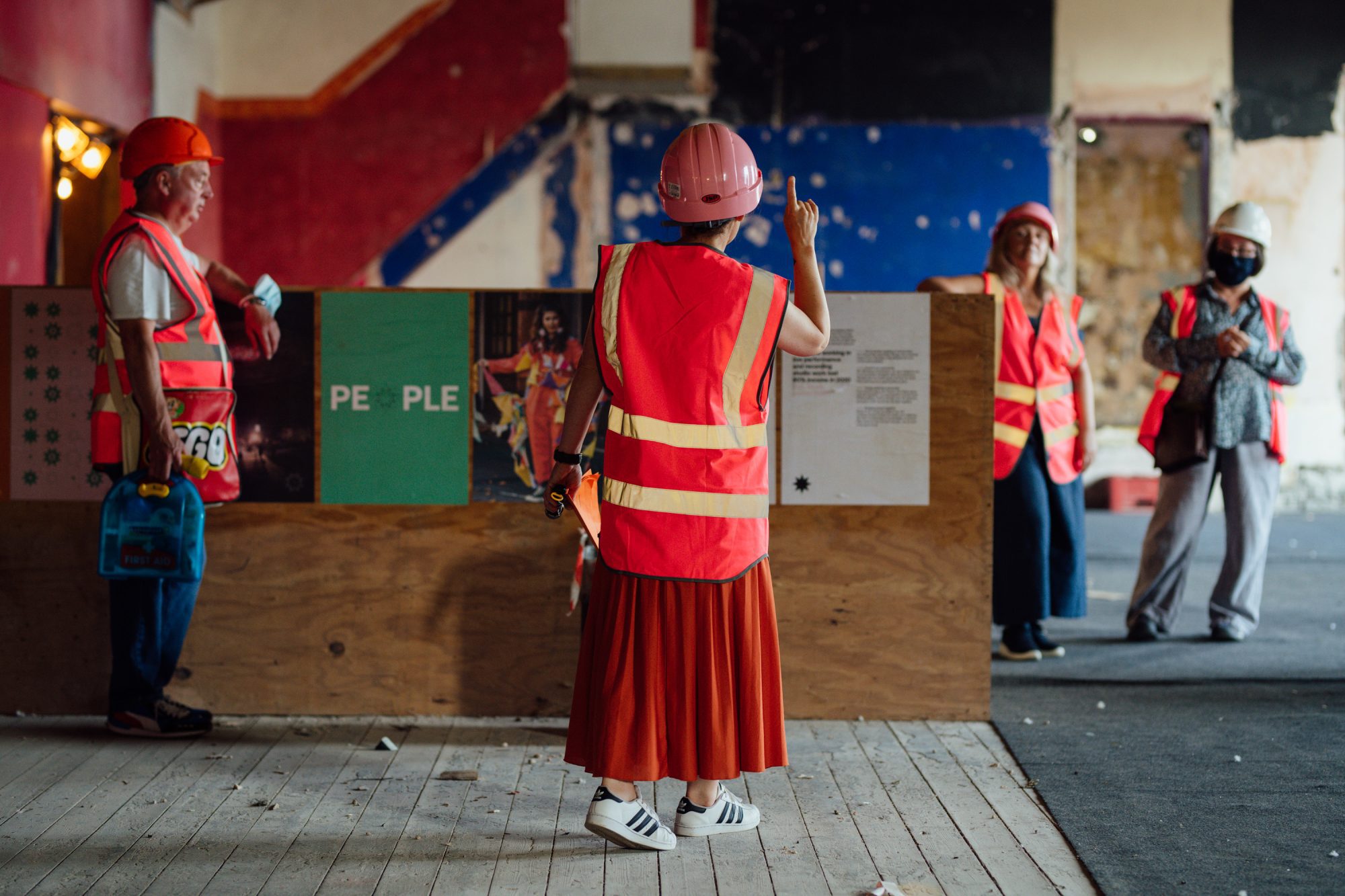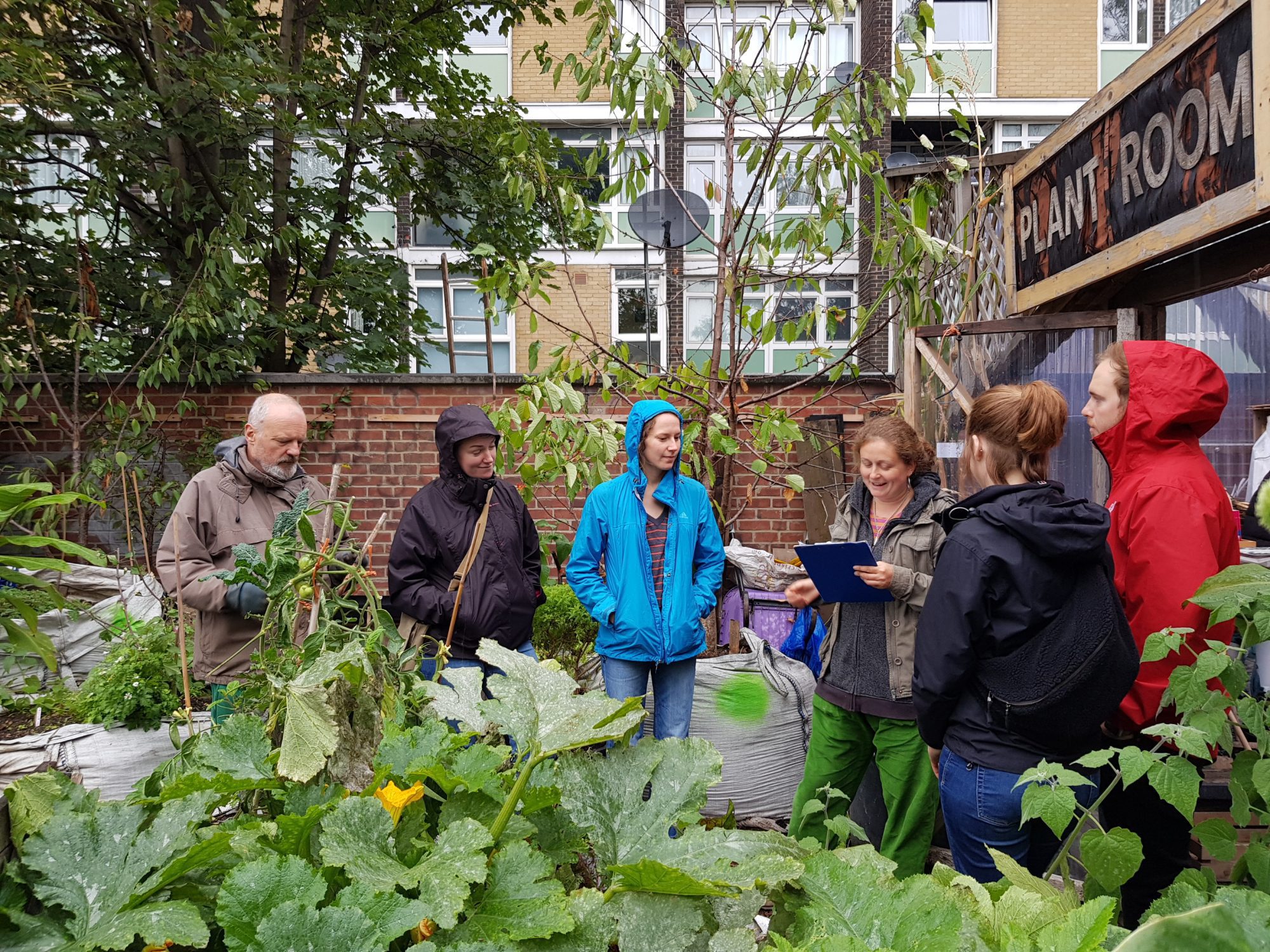
Sacha Bedding
Chief Executive of the Wharton Trust
On 20 October 2016 I received my first email from Power to Change:
“Through our own research and consultation, your area has been identified as having potential for more community businesses to develop and your organisation as having strong connections with your local community, which is why we are offering you this opportunity to apply for funding and support to give us a better understanding of your neighbourhood.”
It came out of the blue and had me puzzled. Why us?
In my neighbourhood
Dyke House is a small neighbourhood in Hartlepool. It’s about a square mile in size with roughly 5,000 residents. It has a secondary school, which is part of a multi-academy trust, and a primary school, in a different multi-academy trust. There’s St Oswald’s Church, one of the oldest and finest churches in the town, and the Nasir Mosque for the region’s Ahmadiyya community. And there’s the Annexe, the community centre which is run by the charity the Wharton Trust, which I have had the pleasure of managing for the last 13 years.
The people who live here, on the whole, are a great bunch. They say of Hartlepool “it’s like a big village” and it is. Until very recently more than 85% of the population of the town were born here. It has an incredibly settled community. Lots of people are either related to one another or part of extended friendship groups. Dyke House is no exception. There are families who have lived here for generations and wouldn’t dream of moving.
One of the most satisfying things is that here, you’re more likely to have a proper conversation with someone who isn’t your neighbour than in most other areas. This speaks to the friendliness and openness of the majority of folk who live here. Although bureaucrats have done their best to dilute a sense of identity by dividing it across three different electoral wards, there remains a real sense of place.
There is also a shared sense of purpose. By 2016, we’d been following a community organising framework for a number of years and it was beginning to bear fruit. Dozens of local people were committed to social action, helped by being a Big Local area – one of 150 places receiving £1 million to be spent how residents wished. These investments made a disproportionate difference, but that wouldn’t have mattered if the desire and willingness to roll up sleeves wasn’t there.
But for all of that, there remained deep issues. The attempts at changing the town largely failed. Recently built call centres came too late, as offshoring by large companies meant that the heavy industry had mostly not recovered. Large and stable employers, particularly in the steel industry, started to close – again, and on it went.
Simultaneously, the first wave of the Universal Credit roll out created so many problems for people. The zeal with which people were sanctioned was horrific. Austerity was still biting. Job density was appalling low with fewer than six jobs for every ten people of working age. Educational attainment was about 20 years behind the UK average, with 1 in 3 adults in Hartlepool remaining functionally illiterate. Life expectancy was beginning to fall and our GPs began to talk of ‘shit life syndrome’ being one of the primary factors in many people’s poor wellbeing.
It was a time when people were looking for change. Labour began to see a significant reduction in its share of the vote for both local and national elections; independent councillors began to appear in most wards, and Ben Houchen had started his pitch to be Tees Valley Mayor. This desire to change reached a crescendo when Hartlepool voted overwhelmingly in favour of leaving the EU.
For all the unhelpful and condescending narratives of racist bigots voting in protest to immigration, the majority of people I spoke to had had enough of being done to without any consideration of the impact of government policy. It was an opportunity for the politically irrelevant class to make a statement – and they did.
Although I was surprised that the Remain vote didn’t mobilise as well as the Leave vote; I wasn’t surprised by the scale of the response locally. As a polling station, we had local residents asking for help to register to vote, motivated by a real opportunity to make a difference. They turned out in numbers. It spoke volumes of the disconnect between our mainstream parties and the will of a whole swathe of the town (and country).
It was against this backdrop that my team and I had an opportunity to work with Power to Change to do something completely different.
Empowering Places
Following a period of learning and reflection, I gave a presentation to Power to Change. This presentation reflected our belief that, with the right investment, there was an opportunity to address the market failure as identified by local residents when our community organisers asked “What don’t you like about Dyke House?”. There was an alternative solution – community business.
It was a presentation I practised. The opportunity to see a £1 million investment into Dyke House weighed heavy. The potential it brought to add to our approach was massive and I didn’t want to mess it up. Fortunately, a couple of months after presenting, I received the email “Welcome to the Community Business Movement!”, and everything changed.
Joining the Empowering Places programme saw us team up with the most inspiring group of people you could meet. We joined five other ‘catalysts’ from around the country; fantastic organisations, all deeply rooted in their place and ambitious to make things better. We were introduced to national organisations to work alongside; Co-operatives UK, the Centre for Local Economic Strategies, and New Economics Foundation. And we got involved with helping Power to Change shape their approach.
Being honest, it took a while to get my head around the whole thing; but when I did, I saw there was so much we could achieve. Some ideas were brilliant, but the barriers to entry were just too high; a personalised care service and a cooperative care home didn’t quite get off the ground. Covid and the policy decisions which followed hit us hard. Power to Change were fantastic though. They were flexible in how we used our grant and, most importantly, patient as the consequences unfolded. That patient and kind approach helped me concentrate on how we could best respond to the crisis affecting our community.
We did have success too. LilyAnne’s, a café which was so much more than that, has very recently moved into larger premises due to demand. Minds for Men, a mental health charity, continues to offer services to local residents, as does Run Fit Hartlepool, for whom I’ve even registered for a trademark! BloomIn Art, too, is doing extraordinary things leading the cultural sector in Hartlepool.
We began to understand the role of community wealth building (who would have thought that the anchor institutions in Hartlepool spend £1 billion annually) and the ways to help money stay close to where it’s generated. We found out that there are properties in Dyke House owned by people in Australia.
Through Empowering Places we’ve just about achieved alchemy. We’ve now got £1 million of income generating assets. We own The Annexe community centre, having used a Tudor Trust grant to buy it from the local authority, and Annexe Housing now has eight houses. The fair rent from the tenants (who commit to social action as part of their tenancy) is just about enough for us always to be here, to be able to open the doors and to say to our local residents “you can rebuild”. This simply wouldn’t have happened without the financial and aspirational impact of being part of Empowering Places.
We’ve also now got a national profile. We’ve sustained relationships with partners which has gone beyond the funding and that’s really important too.
Building community power
But the problem with having achieved so much, is the impatience and ambition to do more. We want to create a genuine Neighbourhood Health Service by having a community owned GP surgery where the profits are reinvested into neighbourhood wellbeing rather than extracted as profit share.
We want to own the Enterprise Centre opposite the community centre and create an Economic Campus to support individuals to improve their skills, create space for self-employment, community businesses and private enterprise, with profits reinvested to enable more people to benefit. We want to scale our housing scheme to give more local people a chance to have one of our homes and bring more income into the organisation, so we are here in perpetuity.
We can only do this if there is a fundamental shift in the approach to where decision making power lies in this country. We know we live in the most centralised country in Europe, and we see that devolution is only really talked about at combined authority level. It’s better than nothing but it misses the point.
Dyke House is one example of thousands up and down the country which could have a more active role in shaping how resources are spent and how decisions are made locally. Our Big Local Partnership has been doing so for 12 years. Local people are contributing to making the place great every day. We’ve got a ten year prospectus which is our effort to ask for help in delivering the change we want to see. It is based on resident feedback and what the data says.
It’s why I chose to be part of the We’re Right Here campaign alongside Power to Change and the other national organisations working together to advocate for deeper devolved decision making at local levels. It’s not about seizing power but sharing it. It’s not about a takeover, but distributing knowledge and responsibility for making our neighbourhoods the best they can be. And, without sounding hyperbolic, it’s really needed, right now.
The world around us feels increasingly insecure. At a global scale, power is increasingly concentrated in the hands of few, powerful individuals, and the consequences are felt by the masses. If people feel disempowered and left behind by politics, the civil disorder that plagued the streets of my town and many others last year is bound to be repeated.
But, imagine if all people had a stake in where they live. If they could have a say, contribute to making their places better. And given a chance, they could get involved, make decisions, work together.
We need the system to enable that to happen in a meaningful way. We’re seeing it happen in Hartlepool. With the right support, we could see it happening where you live too.
Sacha Bedding is Chief Executive of the Wharton Trust, an estate-based charity in Hartlepool using a community organising framework that supports local residents to take action. Sacha is a campaign leader for We’re Right Here, and has worked alongside Power to Change since 2016 as part of the Empowering Places programme and to advocate for policy change.



